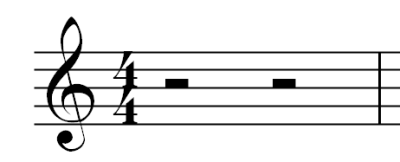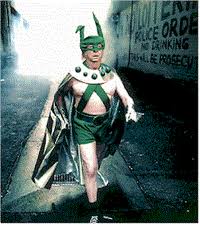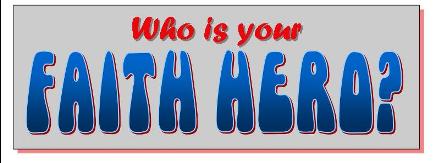I first heard a small diatribe on the subject of faith while visiting Dad’s barber shop. I was a college student and had grown very interested in my parents’ renewed passion for Christ. I tuned in a bit more than usual when a fella that I barely knew started to deliver his discourse on faith.
As I recall his talk, I remember it as just that—a lot of talk. It sounded something like this…
“It’s all about faith, you know. When we get sick, God’s just testing us to see if we can get rid of all our questions and just believe in Him and his power. Why, just the other day I believed really hard that God could heal my aching back, and he did! I was tempted to doubt, but I didn’t let it get to me. My faith healed me!”
I listened as this customer in my dad’s shop proclaimed his conviction that “most of the world’s problems are really just because people don’t have enough faith,” and that poverty, sickness, and pain could be effectively wiped out if people would just extinguish their doubts with a fire hose of super-powerful trust in God.
His talk concerned me. Maybe he knew how to muster up that kind of super-strong faith, but I’m here to confess, I’ve never really been a person who’s been able to get rid of all his doubts or questions. In fact, I would give myself a C- if I had to submit a report card on myself.
The Empty Space
The truth is, when I pray, I often feel like it’s just me talking on a cell phone that’s had the battery removed. Sometimes I feel like I’m in a dead zone. No one is on the other line, and the silence makes me wonder who is really listening.
Rather than feeling the presence of God, I feel an empty space around me. I really try to fill that vacuum with my own strength of will, but the emptiness expands. And I doubt.
The Sacred Silence
But I’m learning. I am learning more about silence, and thus I am learning about doubt. A music teacher recently told me that the most difficult part of the musical score to teach is the meaning of each rest. Music is served by silence. Young bands and orchestras struggle to find rests that are clean and neat, without untimely squeaks, bangs, and notes. The greatest requiem in all the world would be chaos (not to mention impossible to play), if the composer did not write in the restsas he penned his score. Mass too requires empty space, both around and within. Mt. Rushmore was made by removing rock, not by adding to it. The empty spaces give the mountain its definition.

As with art, so with faith. Many times we are hesitant to acknowledge or admit our times of doubt, and we hasten to fill those empty spaces with our own self-willed faith concoction. We sustain ourselves with a placebo, and this “faith” becomes our work. It’s as if we are saying that “by faith we have been saved through faith,” and we boast in our own self-sustained resolve.
But to fear one’s doubts and to deny them is to take away the silence from the music and the space from the sculpture. Faith is not so fragile that doubt threatens its essence. On the contrary, we begin to see the actual source and shape of our faith once all the other things we think matter are cleared away. We don’t destroy doubt, we meet Christ in the midst of it.
Honest Faith

I realize now that the man in my dad’s barbershop had been trying to preach to us a “super-faith.” The problem though is that only superheroes are capable of such super-faith. When we fall temptation to seeing ourselves as these superheroes, we find ourselves telling our stories and demonstrating all the ways we have overcome. It is tempting to be lured into telling stories of triumph when we used quick wit, savvy speech, and super faith to conquer a situation or subjugate a foe. Those stories are about us, and we are the heroes.
But the truth is there is only one story and only one superhero—and we are not it.
The true hero of our faith must be Jesus. This is the Gospel. For every account we share, the only true overcomer is Jesus. Why? Because he took the blow and trusted his Father; Jesus received those lashes and still believed in God; Jesus wept, and still prayed. The Gospel is Jesus Christ, lowering Himself into the form of a man. He emptied Himself, poured everything out, and in return He was despised, rejected, insulted, and abandoned. He was crucified, DEAD, and BURIED. All the while, His faith was overcoming. You and I will NEVER really drink from the cup of Jesus. And glory to God, we don’t have to.
When we recognize that our faith is by God’s grace, we exchange a self-willed super-faith for a Christ-sustaining honest faith. This faith rests in Christ—it means we entrust even our biggest doubts and questions to Him because we know that He is the only one who can do something powerful with them. In fact, as with the rests in the symphony or the empty spaces in the sculpture, He can even use them to make something beautiful and good.
Where to Return
Like the man in need of Christ’s power in Mark 9, we too turn our eyes to Jesus in moments of doubt and pray our deepest Truth and our deepest longing in the self-same breath: “Lord, I believe; I really really believe… Help my unbelief.”
